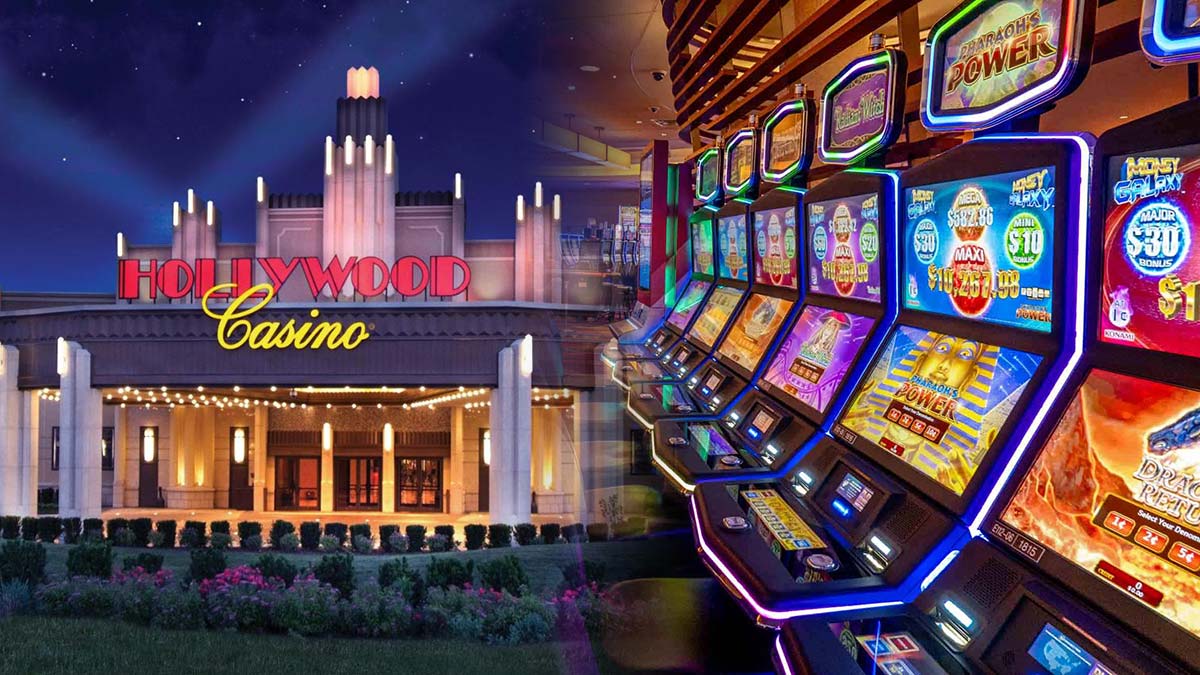
Casino games have long been a captivating form of entertainment, drawing countless of players from varied cultures around the globe. From the lively casinos of Vegas to the thriving gambling halls of Macau, these games serve as a link that unites people across various backgrounds. The allure of fortune, skill, and risk entices not only those seeking to strike it rich but also those looking for a feeling of belonging.
The significance of casino games extends well beyond the gaming floor. They often represent the values and traditions of the communities in which they thrive. https://gacam888.co/ Games such as Texas hold ’em, blackjack, and the wheel game have woven themselves into the tapestry of popular culture, influencing multiple fields from cinema to clothing. As we explore this fascinating intersection of chance and life, we can comprehend better how these games shape and are shaped by the world around us.
Historical Evolution of Gambling Activities
The origins of gambling activities can be traced back to historical cultures, where betting in multiple forms was extensively engaged in. In the East, around two thousand three hundred years before Christ, a type of lottery known as Keno was popular, while in historic the Roman Empire, soldiers would often wager on the consequences of their matches. The notion of using chance for fun and gain evolved over the centuries, leading to the establishment of more organized activities. By the final Middle Ages, betting houses initiated to surface in the continent, particularly in the Italian peninsula, which presented early incarnations of famous activities still enjoyed today.
As betting gained fame in the continent, the 17th and 18th centuries saw the appearance of gaming houses as exclusive venues for gambling. The initial official casino, the Ridotto, was founded in the Venetian city in the year 1638, offering games like the game of Baccarat and Faro. This period marked a crucial turning point, as casinos commenced to draw not just the high society but also the expanding middle-tier society. The refinement of games increased, leading to the introduction of new guidelines and versions that enriched the experience of players.
In the 19th century, the era of industrialization and transformations in social standards also altered the landscape of casino activities. The introduction of the game of roulette and contemporary one-armed bandits pulled in a larger clientele, and gaming houses became seen as legitimate forms of entertainment. This period witnessed the international spread of casino activities, as casinos extended from Europe to the Western Hemisphere, culminating in the establishment of the iconic Las Vegas Boulevard in the twentieth century. The progress of casino activities has continued into the modern era, including new technologies and digital services, making them accessible to a universal audience.
## Cultural Relevance in Different Cultures
Casino games have significant cultural and social importance across numerous cultures across the planet. Places like Las Vegas, the very essence of the urban landscape is woven around casinos, where gambling is not just a pastime but a key aspect of leisure and community life. The dazzling lights and lively atmosphere attract millions, showcasing how gambling activities can influence local economical structures and cultural uniqueness. This setting transforms the notion of leisure into an engaging experience that shapes style, melodies, and even film.
In contrast, some communities view wagering with an air of caution, viewing it through the lens of ethical considerations and customs. For example, in various Oriental cultures, games like Mahjong and Pai Gow are rich with history and carry significant social implications. These games are often played during meetings and festivities, fostering collective connections and strengthening kinship ties. The act of participating in these games goes above mere amusement, reflecting values such as deference to seniors and the value of collective enjoyment.
At the same time, in European countries such as Monte Carlo and Rome, games of chance serve as symbols of luxury and refinement. The stylish atmosphere of these venues attracts both visitors and locals, reinforcing a sense of prestige and rarity. The art of the game of poker and the strategic features of games like banker’s game are esteemed, influencing community relationships and cultivating an attraction that captivates a heterogeneous audience. This highlights how games of chance can simultaneously echo and shape cultural attitudes towards danger, reward, and social interaction.
Economic Impact and Travel Industry
Casino games play a crucial role in the economic landscape of many areas, particularly those that rely heavily on visitor traffic. The revenue produced from casino operations fuels local economies, creating employment opportunities not only within the casinos but also but also in related sectors such as hotel management, restaurant services, and entertainment. This influx of tourists, drawn by the attraction of games and the overall gaming environment, stimulates expenditure across multiple businesses, contributing to the economic health of the region.
The existence of casinos often leads to the development of infrastructure, including lodging, transportation systems, and leisure amenities. These improvements are essential in enhancing the overall tourist experience, making locations more appealing to tourists. Additionally, many casinos contribute in local communities through sponsorship of activities and philanthropic activities, further integrating themselves into the social fabric of the region. Such investment not only supports economic growth but also fosters a positive reputation of the gambling sector.
Furthermore, the worldwide appeal of casino games drives competitive tourism, with locations vying to attract players from across the globe. Iconic locations like Las Vegas and Macau have become identifiable with casino culture, drawing millions each year. This advantage encourages creativity and variety within the gaming industry, influencing trends in leisure and accommodation that resonate beyond their borders. The ripple effects of this visitor influx extend wide, impacting local financial health and cultural exchanges on a worldwide scale.